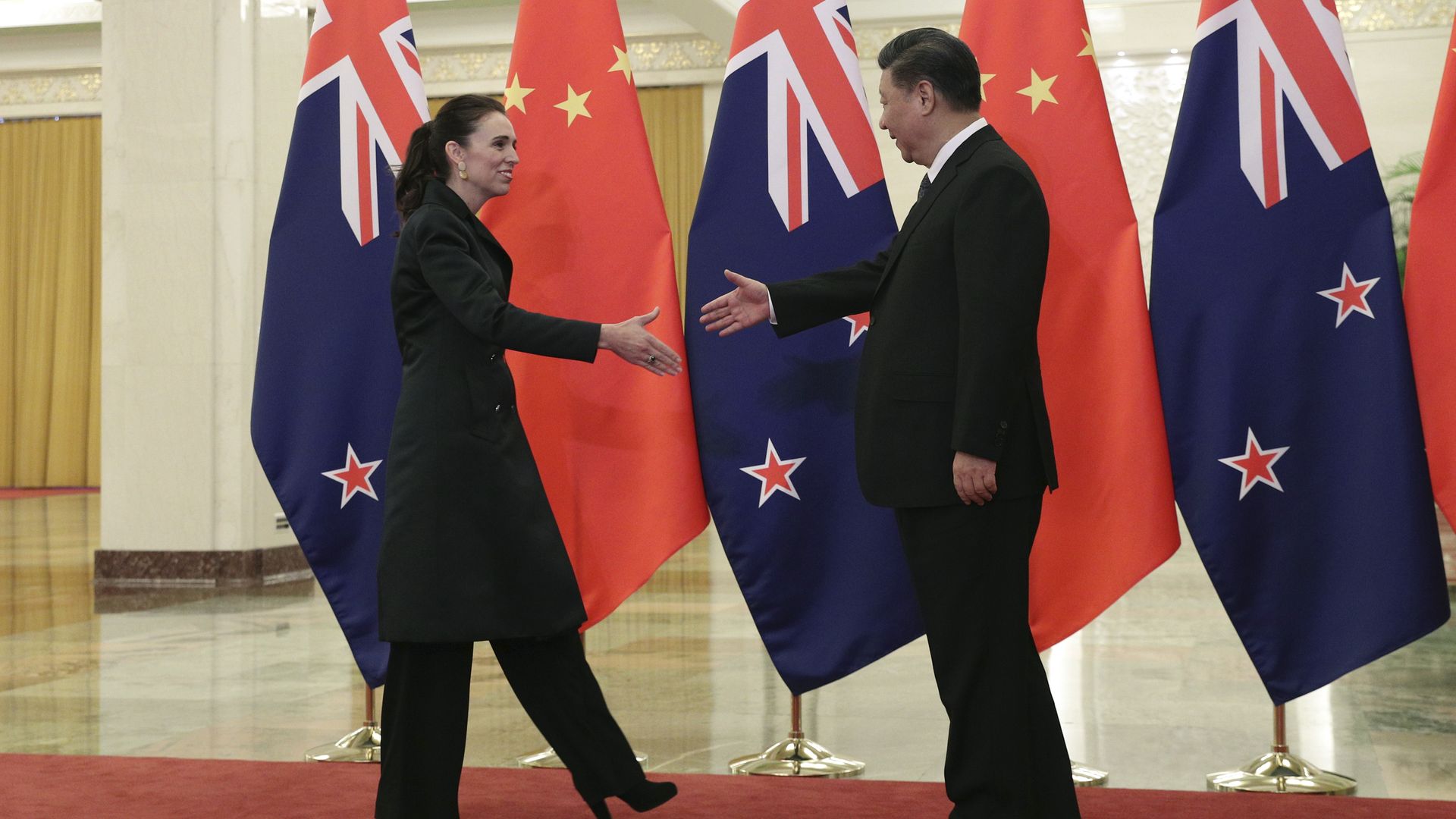Apr 22, 2021 - World
Australia and New Zealand diverge over China
Add Axios as your preferred source to
see more of our stories on Google.

New Zealand Prime Minister Jacinda Ardern meets with China's Xi Jinping in 2019. Photo: Kenzaburo Fukuhara - Pool via Getty
